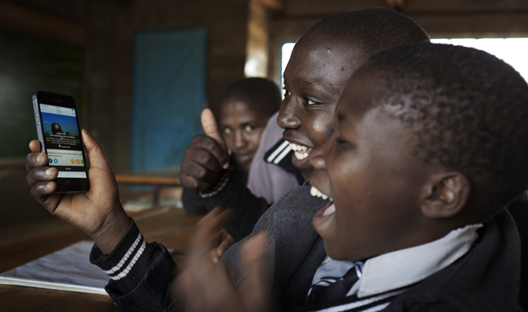Get Focus insights straight to your inbox
At Investec, I work in the Private Banking Analytics Team and one of my mandates is figuring out Machine Learning and Artificial Intelligence use cases that we can implement and leverage.
Back in my university days, I founded an edtech startup which provides curriculum-relevant supplementary revision content to students in the form of tutorial videos, discussion groups and numerous practice questions.
Currently the startup has over 17,000 students. As South Africa moves through lockdown levels coupled with my work at Investec and the edtech, some of my colleagues have asked me one important question: How can we leverage advanced technologies in education such as Artificial Intelligence to keep our children from going to school and risk them contracting Covid-19?
This is a difficult question to answer. There are debates around the world regarding how to reopen schools with some being suspiciously politically motivated, such as the ones in the US regarding international students.
Lyndon Subroyen, our Global Head of Digital and Tech, had a webinar with Offerzen last week and he rightfully answered the “predict the world after Covid-19” question when he said we are all discovering aspects about this pandemic as we go. What this means is the suggestions I have in this article are only possibilities and not prescriptions.
There are three scenarios I will be hypothesizing regarding post Covid-19 education.

Covid-19 brings opportunity for a learning evolution in SA
The Covid-19 pandemic has, in some notable cases, accelerated the adoption of digital learning, which is a win for the future of South Africa’s ailing education system.
Three scenarios for post Covid education
1. Pre Covid-19 Physical Schools
Schools will reopen and students will go back to the usual pre-covid setup of sitting in a classroom or lecture hall. Precautions will be put in place to try and keep them safe for example sanitizers at entrances and notices reminding students to wear masks and wash hands regularly.
Some of these precautions globally will be making use of Artificial Intelligence techniques for example facial recognition systems being deployed in some schools in China, robots that encourage primary school students to wash their hands using cartoon characters, and uniforms with chips in them to track student movement.
Facial recognition software can detect if a student is not wearing a mask and the chip tracking technology will log the student’s movement and, if there is anything wrong with the student, the school can tap into the logs to trace potential secondary infections.
Thermal scanners which are being installed are giving school administrators a way to keep track of students’ temperatures in real time. Though they are not 100% accurate, they are providing additional data points in countries such as the US.
These proposals being put forward by schools are all centered around using advanced technologies to keep students safe but it is easy to see why some people find them to be infringements on students’ privacy.
Coupled with news that researchers found biometric, biographical and location data of thousands of China’s school children unprotected online, using A.I. in a pure brick & mortar, back-to-the-classroom has some very fine lines that need to be observed.

Leveraging both a human and an algorithm gives the best results. This means we have to change our education delivery models.
2. The hybrid model
Many schools and students were already making use of the hybrid model before Covid-19. Supplementary education platforms are being used after classes and lectures. These platforms make use of Artificial Intelligence algorithms in providing the student with the right level content at the right time.
These algorithms learn how the student is engaging with the content and which areas they are finding difficult to understand by tracking for example how many times they repeat a video in a given timeframe, how many trials it takes for them to get a practice question correct, and the discussions they have engaged in with other students.
Upon learning which parts the students need to revise more, the algorithms direct them to more resources for further studying or suggest hiring a specific tutor who is a specialist in that content. These platforms work best when they are used as supplementary tools or support to the physical efforts of teachers and lecturers in schools and universities.
In a post-Covid-19 world, this model can be expanded even further in different formats, for example reducing the number of days students need to physically attend classes. Perhaps something like three days a week in a physical setting with the other two being supported by A.I.-powered platforms, which also brings about other benefits for developing countries such as reducing constraints on school resources and saving money to keep schools open.
This model also has the potential to scale the efforts of teachers across the country, protect participants, and provide even more useful insights for teachers through mining of the data being generated on these platforms.

Tech4Good: Focus on education
Investec brought together leaders in education and edtechpreneurs to discuss scaling reading through tech, the state of the SA school system, digital opportunities in rural schools and how big data is changing classrooms.
3. The algorithm is your teacher
What is an article about Artificial Intelligence without me speculating about the distant future we always see on Sci-Fi movies? Do you recall a movie called “The Class of 1999”? The premise was, “A principal's attempt to demilitarise his high-school battle zone with android educators backfires.”. Okay, that is not exactly what I am discussing in this article, but I find it utterly amusing that every time robots come up, we rush to thinking of something militaristic!
In this future setup in education, we will not be fighting robots with the tag line, “To graduate is to survive”. Robots are inevitably coming in various forms and they will be teaching our students full time be it in a classroom setting or in the comfort of their own bedrooms.
A number of countries are testing robots out as teaching assistants but in some distant future, these robots will be all you need. No more human teachers.
In this fantasy, Artificial Intelligence will power these robots and their algorithms will give the robots the ability to scan a student’s face and predict their emotional state, for example. Is the student tired or hungry or it is because they do not fully grasp the concept being taught?
This can be done in real time for every student at once or at different times because the robot teacher can be available 24/7 since it does not tire or need to tend to a family. Personal robot teachers mean students can attend class any time they want.
The robots can also switch languages in an instant by making use of Natural Language Understanding and Generation algorithms and speak fluent IsiZulu or French depending on your native tongue.
Current research shows that learning in your native tongue is helpful in understanding concepts. With cloud storage, every new robot teacher can quickly download and go through your academic history and know your pain points in an instant.
If you struggled to understand long division in the previous grade, your new grade teacher automatically knows that along with the precise questions on their A.I.-powered digital platforms that you struggled with. See? Robots are not all apocalyptic!
Get basic connectivity right first
Covid-19 has disrupted almost every aspect of our daily lives and education has not been spared. Which scenario is best? In my opinion, I would say the hybrid model with a limited number of days for physical interaction.
This model helps us take advantage of the beauty of both worlds. At Investec, we call this “High touch, high tech.” There are certain aspects about students a human teacher understands which will stump an AI algorithm.
Leveraging both a human and an algorithm gives the best results. This means we have to change our education delivery models. There are many intertwined and complex problems needing to be solved for this hybrid model to work.
What do we do for students who do not have basic resources to access the digital platforms on those “off days”? South African universities have loaned laptops and are giving students data but that is just a band aid.
If Covid-19 is not the last we have seen of global pandemics, being physically present in a classroom every day poses risks we will not be able to afford in the future. The question then changes from potential ways to leverage advanced technologies to one of how to structure our society and economy to give everyone access to basic resources and also 21st century ones such as affordable internet.
About the author

Houston Muzamhindo
Data Scientist, Investec Private Bank
I am a Data Scientist within the Analytics Consulting Team in Investec Private Bank where my team focuses on building the machine learning and artificial intelligence capability in the bank, coming up with use cases and implementing them. I founded an edutech startup when I was doing my undergraduate studies and it currently has just over 17,000 students registered, mostly from South Africa.




